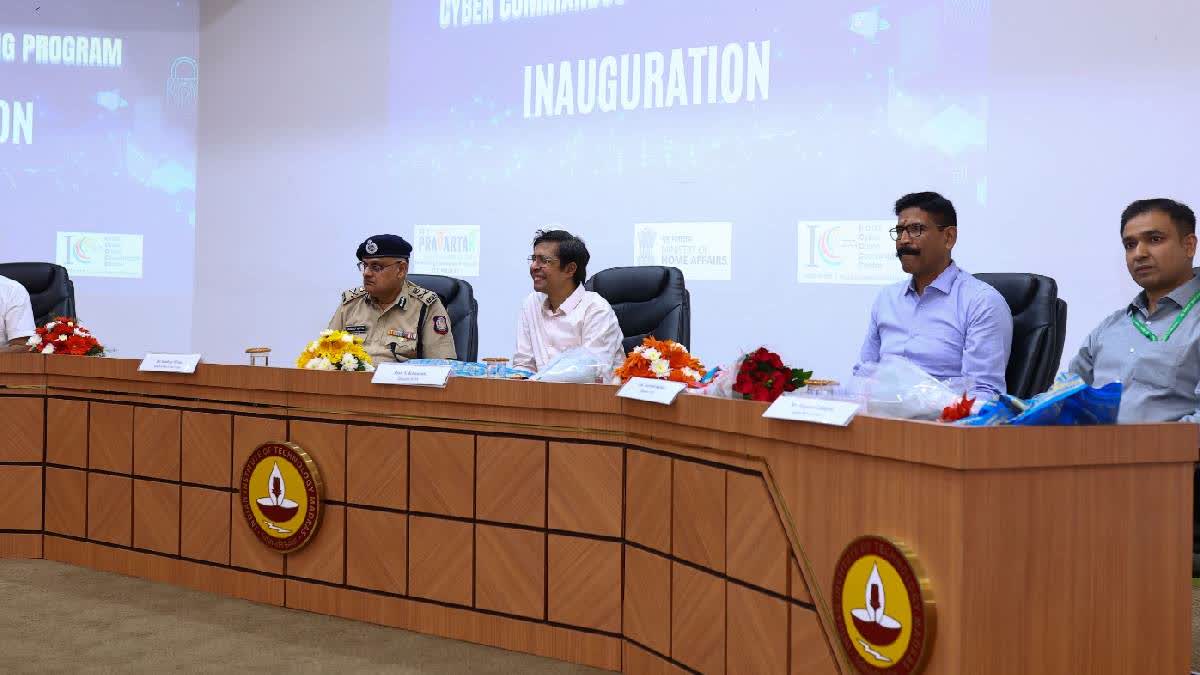Chennai:The IIT Madras Pravartak Technologies Foundation has launched a new training programme to create ‘Cyber Commandos’ among law enforcement officers across India. An initiative of the Union Ministry of Home Affairs (MHA), the ‘Cyber Commandos’ programme is a critical step in bolstering India’s cyber defence capabilities.
This specialised force will be at the forefront of defending the nation against cyberattacks, safeguarding sensitive data and maintaining digital sovereignty.
The Cyber Commandos will represent a significant upgrade from existing cybercrime cells. While these cells primarily focus on reactive measures like investigation and prosecution of cybercrimes, the commandos will be a proactive force.
The training programme was launched at IIT Madras on Thursday by Prof V Kamakoti, Director, IIT Madras, in the presence of Dr. Sandeep Mittal, IPS, Additional Director General of Police (ADGP), Cyber Crime Wing, Tamil Nadu, Col. Arvind Kumar, Director, Indian Cyber Crime Coordination Centre (I4C), Mayank Ghildiyal, Deputy Director, I4C, Dr MJ Shankar Raman, CEO, IIT Madras Pravartak Technologies Foundation and other dignitaries.
The urgency of this initiative has been emphasised by the increasing frequency and severity of cyber threats India faces. From financial fraud and data breaches to critical infrastructure attacks, the digital landscape poses significant risks. The Cyber Commandos programme is essential to ensure India is adequately prepared to counter these threats and protect its citizens and economy in the digital age.
The trainees will comprise officers from the law enforcement ecosystem who will be trained as cyber commandos. The course will entail advanced modules on systems forensics, detection and prevention of unethical access to systems, detecting crimes in the cyber domain, among others.
Addressing the inaugural programme, Prof V Kamakoti, Director, IIT Madras, said, “On a daily basis, the cyber threat landscape is increasing. We are getting more and more devices into our day-to-day life as digitisation increases. Data is very important now. Processing of both structured and non-structured day is also vital.”
Prof. Kamakoti added, “We need to arrive at a proactive way to prevent cyber threats. We need to have a deep understanding. The next six months will deal with how to proactively detect cyber attacks and use forensic technologies to develop defenses. This effect is going to be very important and I thank MHA for supporting this program.”
Recognising the escalating sophistication of cyber threats, this programme aims to equip law enforcement officers with advanced skills to combat cyber challenges effectively. Through rigorous training, State and Central police personnel will be transformed into cyber experts, capable of investigating complex digital crimes, tracking cybercriminals, and protecting critical infrastructure.
